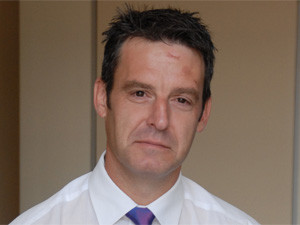
SA's mobile duopoly squares off against the regulator today in court, in a battle that is all about protecting shareholder returns, and has nothing to do with benefiting the consumer, despite claims to the contrary.
Vodacom and MTN are taking the Independent Communications Authority of SA (ICASA) to task over its bid to drop the cost of interconnecting between networks. ICASA's aggressive move is meant to spur more competition in the sector, which will indirectly benefit consumers.
While SA's two largest network operators have argued they are seeking to benefit consumers, and there is no substantial link between lower termination rates and retail costs, analysts argue all they are trying to do is protect their bottom lines.
This is the second time ICASA has moved to cut mobile termination rates, and the second time its move to indirectly benefit consumers has been challenged by the operators.
Its 2009 bid involved much negotiation over several months before an agreement was finally reached between operators and ICASA. That was followed by regulations, which eventually saw rates drop to 40c from last year.
Game-changer
This time, ICASA's "aggressive" move is being challenged in court - initially by MTN and then also by Vodacom. The operators argue the regulator did not follow proper procedure when it said rates must reach 40c for Cell C and Telkom Mobile, and 10c for the two dominant players in 2016. The aim is to have an across-the-board MTR of 10c by 2017.
Cell C CEO Alan Knott-Craig says: "It is no exaggeration to claim that the coming week will be make or break for affordable mobile communications in SA - quite possibly for the next 20 years."
In the build up to the legal battle, MTN and Cell C have been involved in a slinging match, with each trading barbs over the other's position, through various communication channels - including expensive advertisements in the Sunday papers.

ICASA's mooted rate cut will benefit smaller players, allowing them to be more competitive, while MTN has warned the glide path could lead to job losses, and Vodacom has said they may have an effect on its ability to roll out more infrastructure.
Protecting income
Ovum analyst Richard Hurst says consumers have been left in the lurch in the middle of the ongoing public and legal war. He says the delays mean consumers are losing out while operators try to protect their bottom lines, which are coming under increasing pressure due to revenue stagnation.
Hurst adds the operators cannot sit by idly and let their top lines be impacted by lower rates.
Yet, a recent Research ICT Africa report found the last drop did not harm operators as much as they had feared. "Although the rate at which the larger operators are able to attract new subscribers has slowed down, they remain positive."
Dominic Cull, owner of Ellipsis Regulatory Solutions, says the entire court case is a "rands and cents issue", despite operators' claims that they represent consumers' voices. "It's about shareholder return."
Saicom Voice Services CEO Howard Sackstein says none of the mobile operators are fighting to lower the cost of calls to consumers; the current court battles are about revenue protection not competition. The large operators talk about their revenue erosion, but forget to mention their outgoing mobile termination payments are being reduced as well, he notes.
ICASA is trying to indirectly aid consumers by creating more competition, which should result in lower prices, says Cull. He adds its latest "aggressive" move was because it felt it had not done enough to introduce competition and weaken the duopoly in its 2010 regulations. SA's mobile charges are among the highest of its peers.
MTN CEO Sifiso Dabengwa has said the link between wholesale prices and retail costs has been exaggerated.

According to a February report by Research ICT Africa, the previous drop "appears to have enabled late entrants to drop their prices sufficiently to, this time, force a response from Vodacom. Vodacom brought its prices down to match Cell C's 99c [tariff] - but, having not lodged the tariff correctly with ICASA and having staved off a churn from their network to Cell C - the price settled at R1.20.
"MTN, on the other hand, sought to resist a price war by preserving their high prices and relying on their dynamically priced MTN Zone to retain and attract price-sensitive customers."
Research ICT Africa found mobile termination rates impacted positively on prepaid mobile retail prices in the second quarter of last year - but by the last quarter of 2013, prepaid voice mobile prices had plateaued, with no further reductions in prices by Vodacom and MTN.
"The absence of further responsiveness to pricing pressure from smaller operators, who reduced their prices dramatically during 2013, means SA's dominant operator prices remain expensive compared to other African countries."
However, Vodacom spokesman Richard Boorman points out ICASA's call termination regulations state "a reduction in termination rates does not necessarily feed through directly to a reduction in retail rates". He says rate cuts can have an indirect benefit at retail level, but the impact cannot be quantified.
No voice
Right2Know research fellow John Haffner says ICASA's aim to transform South African telecommunications from a duopoly to a more robust sector has been lost in the tit-for-tat exchanges between MTN and Cell C in the media.
"Both sides of the interconnect debate need to halt the mudslinging and start thinking about how their public relations attempts to smear their competitors are actually doing nothing for the people of South Africa."

Cull comments: "It is a great pity there is not a coherent consumer voice participating in the debate." He says consumers' voices have been appropriated by the operators and the Department of Communications.
Everyone is claiming to promote consumers' interests, says Cull, but as far as he can see, only ICASA has that aim. He adds operators' claims about benefiting consumers are "fictitious". "Consumers don't have a voice; that is the problem."
MTN SA CEO Zunaid Bulbulia recently said: "How overcharging the larger networks' subscribers to call smaller networks will deliver cheaper prices for all South African [consumers], is something neither ICASA nor the recipient of the so-called asymmetry has managed to explain."
As at September, Vodacom and MTN enjoy a 43% and 36% market share, respectively; while Cell C and Telkom Mobile hold 17% and 2.2% of the market, respectively.
It is difficult to see how the interests of consumers seeking affordable and quality communications and that of operators' shareholders can sit together, says Cull.
Although operators are "crying" over declining revenues - a symptom of the increasing shift to lower margin data use - they are not dropping retail costs as much as they can, which gives them better margins, says Hurst.
Several parties have spoken out in favour of ICASA's action to slash termination rates and give smaller players a leg up, although industry observers have also questioned the extent of relief consumers would in reality feel.
Communications minister Yunus Carrim has, on a few recent occasions, slammed Vodacom and MTN for taking to the court and delaying the new MTR regime - which he sees as a catalyst for lower mobile costs - from taking effect.
Meanwhile, the Internet Service Providers' Association, Right2Know, Cell C and Telkom have also had their say against efforts by SA's mobile giants to block quick implementation of new inter-network fees.
Haffner says consumers should not be surprised, by now, that regulators are often held hostage by the private sector.
Failing consumers?
Cull says the process ICASA must follow is rigorous and it does not always have the resources to do so properly. He says, however, that the regulator does have more bite than it used to, which is evidenced by the fact that the rates have been challenged.
However, it is difficult to see exactly what its consumer affairs division does to protect consumers, says Cull. In addition, the National Consumer Commission, which attacked the sector under former head Mamodupi Mohlala-Mulaudzi, failed to effect meaningful changes because it erred procedurally and the commission has since been very quiet, he adds.
Kathleen Rice, director of technology, media and telecommunications at law firm Cliffe Dekker Hofmeyr, says the case could benefit consumers if ICASA is found to not have followed procedure as it will force the regulator to act within the boundaries of the law.
ICASA says the hearing, initiated by MTN on 12 February and joined by Vodacom about two weeks later, will determine whether implementation of MTR in the intended form takes place - or is delayed further.
Share